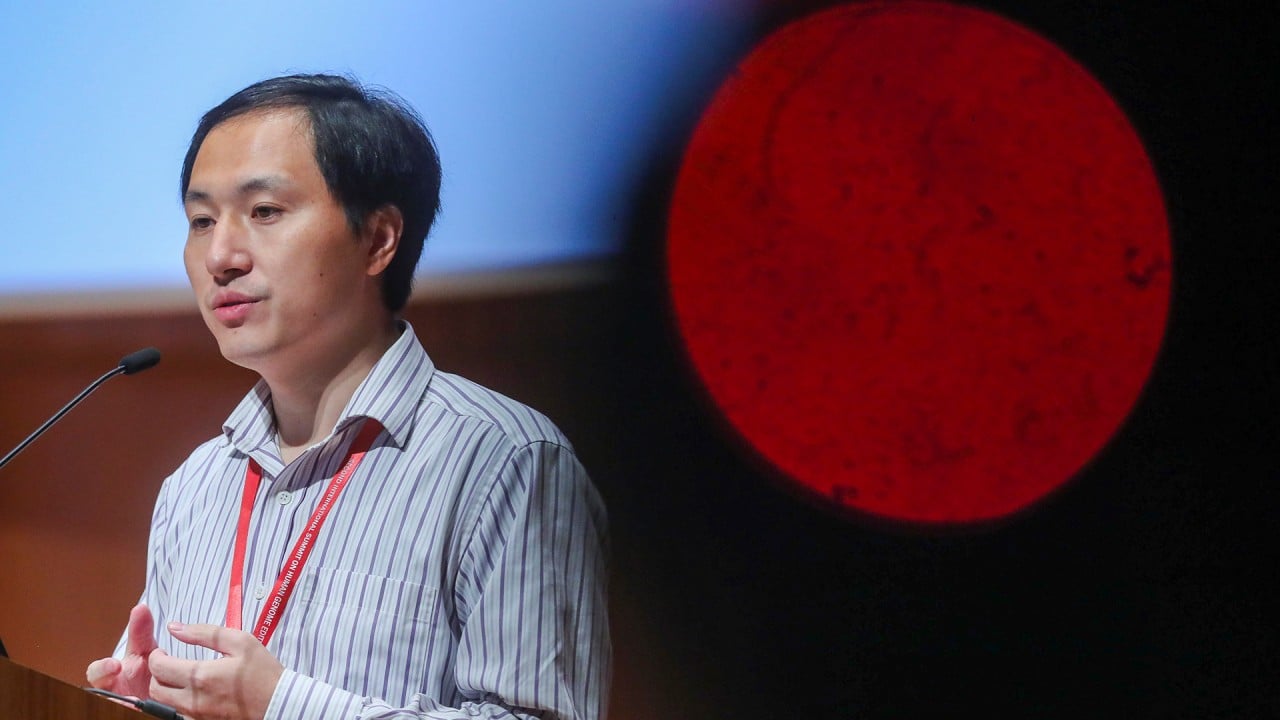
Ban He Jiankui, creator of gene-edited babies, from experimenting on people, Chinese bioethics group says
- Prominent bioethicist Qiu Renzong among legal, ethics and scientific experts calling for investigation of He’s possible recent violations
- ‘[We] strongly condemn his misleading marketing hype about his rare disease research plans in the absence of scientific substance and ethical safeguards’
In a statement dated March 5, the group of 18, including a number of bioethicists, said He had refused to adequately acknowledge his legal and ethical breaches.
“[We] strongly condemn He Jiankui’s refusal to reflect on his crime of seriously violating gene-editing ethics, laws and regulations,” the group said in the statement released after they met to discuss He’s research.
“[We] also strongly condemn his misleading marketing hype about his rare disease research plans in the absence of scientific substance and ethical safeguards,” they said, adding that further breaches might have occurred.
He Jiankui stunned the world in 2018 when he announced at a conference in Hong Kong that he had created genetically modified twin girls. A third girl was born the following year.
Last month, He said on social media that he aimed to continue working to “overcome three to five genetic diseases within two to three years to benefit families with rare diseases”.
The first rare disease He wants to tackle is Duchenne muscular dystrophy, an inherited disorder of progressive muscular weakness typically occurring in boys.
He said he aimed to raise 50 million yuan (US$7.3 million) for the research and to start clinical trials in March 2025.
Controversial Chinese scientist’s research plan labelled ambitious, impossible
However, some scientists and bioethicists said He had consistently failed to provide detailed research plans and gave patients false hope.
“We feel that we can’t let him go on like this, otherwise the patients’ families will suffer,” Qiu said.
“We also want to alert the government about what He is doing and that He may repeat his past mistakes.
“What He did is against Chinese ethical requirements.
“He also didn’t make it clear to the families what the risks and benefits of his research might be.”
Qiu said He should not conduct experiments involving people, and nor should he do genome editing.
World’s first gene-edited humans living ‘normal, peaceful’ lives: He Jiankui
The group also recommended regulatory authorities improve the system of prohibiting those who commit crimes in emerging technology areas, such as human genome editing, from practice.
Peng Yaojin, a bioethicist with the Chinese Academy of Sciences, told the meeting that China could learn from the case of James Wilson, the director of the University of Pennsylvania’s Institute for Human Gene Therapy, who led a clinical trial for gene therapy that resulted in the death of a patient in 1999.
The US government banned him from working on FDA-regulated human clinical trials for five years. It led to a shift in his research focus to adeno-associated virus vectors, which would work like vehicles to deliver gene therapies.
The guideline says colleges and medical and research institutions should set up an ethics review committee if they conduct life sciences and medical research involving humans.
Qiu said the guideline was good but did not cover everything.
“If private enterprises, even state-owned enterprises, want to conduct research involving humans, there’s no ethical review system to regulate them. That is the question,” Qiu said.



